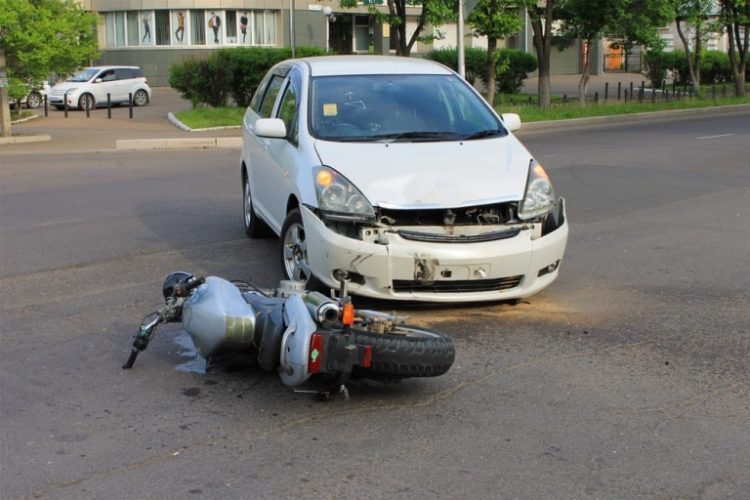Politics
Navigating Fault in Motorcycle Accidents: Key Factors Explained

Motorcycle accidents often lead to complex questions surrounding fault, particularly in bustling areas like Cape Coral. With its increasing traffic and diverse road conditions, determining responsibility can be challenging. Understanding these factors is essential for those involved, especially when seeking compensation or clarity about the incident.
Evidence Collection at the Scene
Gathering evidence immediately after a motorcycle accident is crucial for establishing fault. Investigators typically collect photographs, witness statements, and video recordings to create a comprehensive understanding of the event. Physical evidence, such as skid marks and vehicle damage, offers insights into the moments leading up to the collision. Law enforcement officers document the scene, capturing essential details for insurance companies and potential court proceedings.
Understanding Traffic Laws
Traffic laws play a significant role in determining fault in motorcycle accidents. Violations, such as running a red light or speeding, can heavily influence the outcome. Police reports are invaluable in this context, as they detail any citations issued at the scene and reinforce findings of fault. If a driver or rider is found to have violated traffic regulations, it often shifts the liability toward them.
Witness statements also provide critical information about the accident. Impartial bystanders can share their observations, helping to reconstruct the timeline of events. This independent perspective can corroborate or challenge other evidence, making it a vital component of the investigation.
Legal documents, such as police reports, serve as formal records of the incident. Officers assess physical evidence and interview involved parties and witnesses. These reports may include details about weather conditions, road hazards, and any traffic violations observed, all of which contribute to the determination of fault.
In some cases, accident reconstruction specialists analyze the evidence using scientific principles to recreate the sequence of events. They can provide insights into factors such as vehicle speed and points of impact, which can clarify uncertainties and identify responsible parties.
The concept of contributory and comparative negligence also affects fault determination. In certain jurisdictions, contributory negligence rules dictate that if the injured party holds any responsibility for the accident, they may be barred from receiving compensation. Conversely, comparative negligence allows for the division of fault between the parties involved, which can impact insurance claims and court outcomes.
Insurance companies conduct their investigations to ascertain fault. They review police reports, interview witnesses, and evaluate physical evidence. Adjusters aim to resolve disputes efficiently while also safeguarding the financial interests of their companies.
Factors unique to motorcycles can influence liability. Their smaller size makes them less visible to other drivers, increasing the risk of accidents. Additionally, the presence of gravel or potholes can contribute to crashes. A rider’s use of protective gear, such as helmets or reflective clothing, may also be considered when assessing their level of responsibility.
Common causes of motorcycle accidents include left-turn incidents, sudden lane changes, and distracted driving. Drivers often misjudge a motorcycle’s speed or fail to check their blind spots, leading to potentially dangerous situations. Environmental factors, such as poor visibility or unsafe road conditions, also play a significant role in accidents.
Legal proceedings may be necessary to establish fault in motorcycle accidents. Attorneys gather evidence, consult experts, and advocate for their clients in court. This process allows all parties to present their perspectives and work toward a fair resolution. Disputes may escalate to legal action, where a judge or jury ultimately determines responsibility.
Determining fault in motorcycle accidents requires a thorough evaluation of evidence, witness testimony, and applicable traffic laws. Swift and strategic investigations, guided by expert analysis, contribute to equitable outcomes for all parties involved. Understanding these factors not only empowers individuals to protect their rights but also fosters safer riding conditions in communities like Cape Coral.
-

 Science4 weeks ago
Science4 weeks agoIROS 2025 to Showcase Cutting-Edge Robotics Innovations in China
-

 Lifestyle4 weeks ago
Lifestyle4 weeks agoStone Island’s Logo Worn by Extremists Sparks Brand Dilemma
-

 Health4 weeks ago
Health4 weeks agoStartup Liberate Bio Secures $31 Million for Next-Gen Therapies
-

 World4 weeks ago
World4 weeks agoBravo Company Veterans Honored with Bronze Medals After 56 Years
-

 Politics4 weeks ago
Politics4 weeks agoJudge Considers Dismissal of Chelsea Housing Case Citing AI Flaws
-

 Health4 weeks ago
Health4 weeks agoTop Hyaluronic Acid Serums for Radiant Skin in 2025
-

 Lifestyle4 weeks ago
Lifestyle4 weeks agoMary Morgan Jackson Crowned Little Miss National Peanut Festival 2025
-

 Science4 weeks ago
Science4 weeks agoArizona State University Transforms Programming Education Approach
-

 Sports4 weeks ago
Sports4 weeks agoYamamoto’s Mastery Leads Dodgers to 5-1 Victory in NLCS Game 2
-

 Top Stories4 weeks ago
Top Stories4 weeks agoIndonesia Suspends 27,000 Bank Accounts in Online Gambling Crackdown
-

 Sports4 weeks ago
Sports4 weeks agoMel Kiper Jr. Reveals Top 25 Prospects for 2026 NFL Draft
-

 World4 weeks ago
World4 weeks agoHoneywell Predicts Record Demand for Business Jets Over Next Decade









